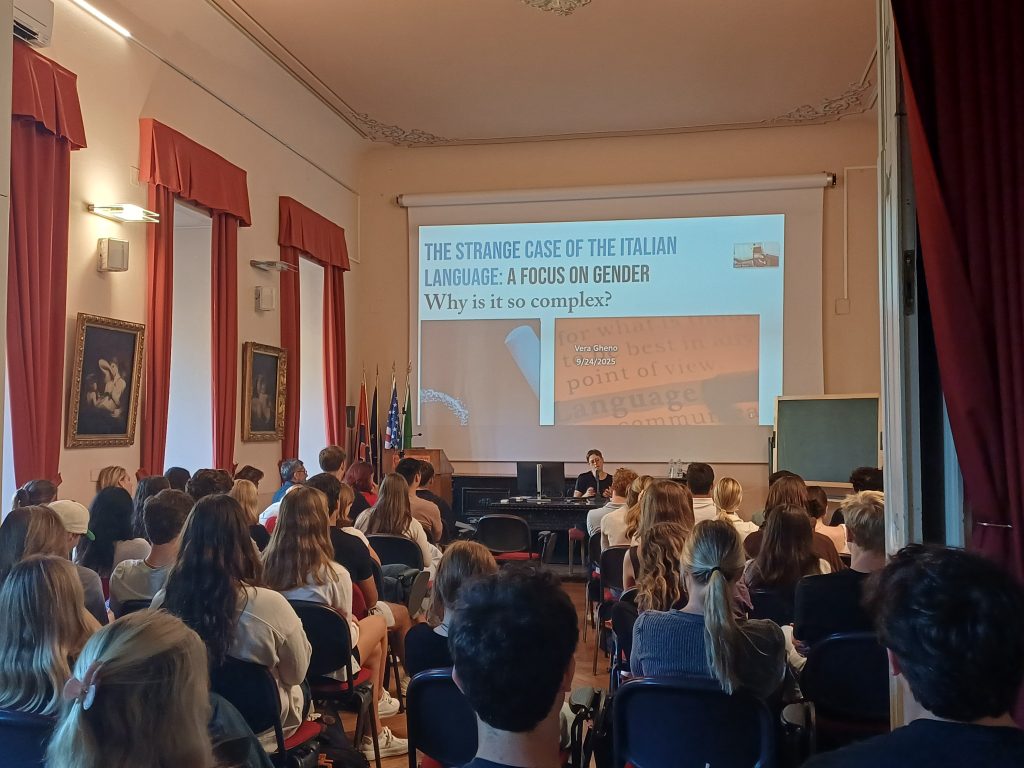By Mario Russo, Immersive Learning Coordinator, Syracuse Florence

On September 24th, we welcomed sociolinguist and translator Vera Gheno, one of the foremost experts on the Italian language and the changes it has undergone over the past 40 years in particular, and in today’s Italian society.
She spoke to our Fall semester students about the structure of Italian within the framework of European languages, the thorny issue of grammatical gender in Italian nouns, and how the diktat of masculine/feminine gender in Italian influences today’s Italian society in defining women’s roles in the workplace and in high-level professions, once almost exclusively the domain of men.

While nowadays we finally witness women’s success in all professional fields and we have female airplane pilots, lawyers, ministers, mayors, etc., we cannot say that there is the same recognition from a linguistic standpoint. Many Italians, even those with very high cultural levels, are still reluctant to use words like ‘la ministra’ (the female minister), ‘la sindaca’ (the female mayor), ‘l’avvocata’ (the female lawyer).
Vera Gheno also gave us food for thought and reading suggestions on how to overcome the use of masculine forms to indicate feminine ones as well.
